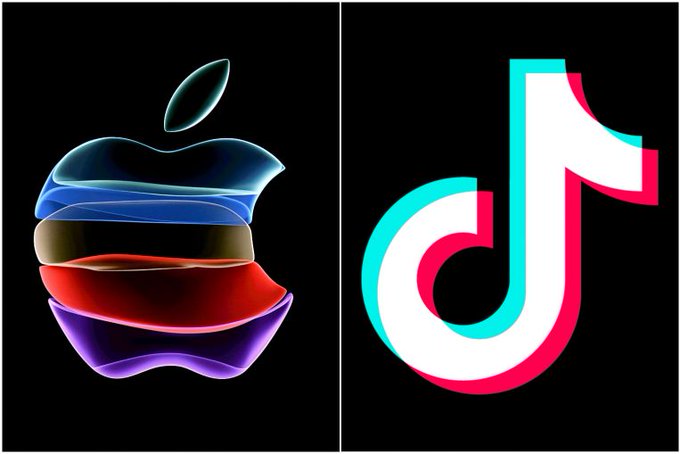Popular Reads
Top Results
Can't find what you're looking for?
View all search resultsPopular Reads
Top Results
Can't find what you're looking for?
View all search resultsApple, TikTok faulted by US Republican senator over China ties
“With Apple and TikTok, we see two sides of the same coin when it comes to data security: the danger of Chinese tech platforms’ entry into the US market, and the danger of American tech companies’ operations in China,” Missouri lawmaker Josh Hawley told a hearing he led on big data and China Tuesday.
Change text size
Gift Premium Articles
to Anyone
A
pple Inc. and the Chinese-owned music-video app TikTok are threats to international data security because of their business ties to China, a key Republican senator warned.
“With Apple and TikTok, we see two sides of the same coin when it comes to data security: the danger of Chinese tech platforms’ entry into the US market, and the danger of American tech companies’ operations in China,” Missouri lawmaker Josh Hawley told a hearing he led on big data and China Tuesday.
Hawley, a frequent tech critic and ally of President Donald Trump, held the hearing as security concerns mount around TikTok. A US security panel has begun to review the purchase of social media startup Musical.ly by China’s ByteDance Inc. for almost $1 billion two years ago to merge it with TikTok, Bloomberg News reported last week.
US lawmakers called for a national security review of TikTok last month. Senate Minority Leader Chuck Schumer of New York and Republican Senator Tom Cotton of Arkansas wrote to US Acting Director of National Intelligence Joseph Maguire Oct. 23, referring to TikTok as a “potential counterintelligence threat we cannot ignore.”
“A company compromised by the Chinese Communist Party knows where your children are, knows what they look like, what their voices sound like, what they’re watching and what they share with each other,” Hawley said during the hearing. “All it takes is one knock on the door of their parent company, based in China, from a Communist Party official, for that data to be transferred to the Chinese government’s hands whenever they need it.”
Hawley said on Twitter he invited both TikTok and Apple to appear at the hearing, but they declined. He singled out TikTok, saying the company “has refused to join the hearing and provide more info on how it handles Americans’ personal data.” He told reporters after the hearing that it “may be necessary” to subpoena TikTok.
“We have no higher priority than earning the trust of users and regulators in the US,” a TikTok representative said in a statement. “Part of that effort includes working with Congress and we are committed to doing so.” TikTok said it hadn’t been able to provide a witness who would have been prepared “to contribute to a substantive discussion” on short notice.
The company’s content decisions often came from Chinese leadership as recently as this spring, according to unnamed former employees interviewed in a Tuesday report in the Washington Post. In a letter to Hawley released by his office, TikTok General Manager Vanessa Pappas said content moderators are led by a US-based team and would not take direction from Beijing.
“We are proud of the fact that our young company has quickly earned its reputation as a fun, engaging site for users around the world to create, watch and share content,” Pappas said in the letter.
But Klon Kitchen, a former US intelligence officer who leads technology policy at the Heritage Foundation, a conservative think tank, said a new Chinese cybersecurity law that takes effect in January will require any company operating in China to give the government access to data.
Hawley also criticized Apple for “risking compromise to authoritarianism” because of the importance of the Chinese market to the Cupertino-based company’s partnership, announced last year, to store iCloud data locally for users in mainland China.
“If you’ve got family in China or business contacts there, you cannot count on iMessage encryption to keep your interactions secure from Chinese authorities,” Hawley said, though he praised the company’s stances on encryption and privacy.
At the time, Apple said that it deploys “strong hardware and software security protections to keep information safe and to ensure there are no back doors into our systems” in data centers, and it noted that a new Chinese law had required localizing the data.
Senator Sheldon Whitehouse of Rhode Island, the panel’s top Democrat, suggested that tech platforms could do more to avoid problems but aren’t always willing. He cited Facebook Inc.’s accepting payments in rubles for political ads in the run-up to the 2016 presidential election -- purchases that turned out to be part of Russia’s attempts to meddle in the contest.
“Willful blindness seems to be a theme among our platforms,” Whitehouse said. “They don’t want to ask the questions because they don’t want to hear the answers.”










